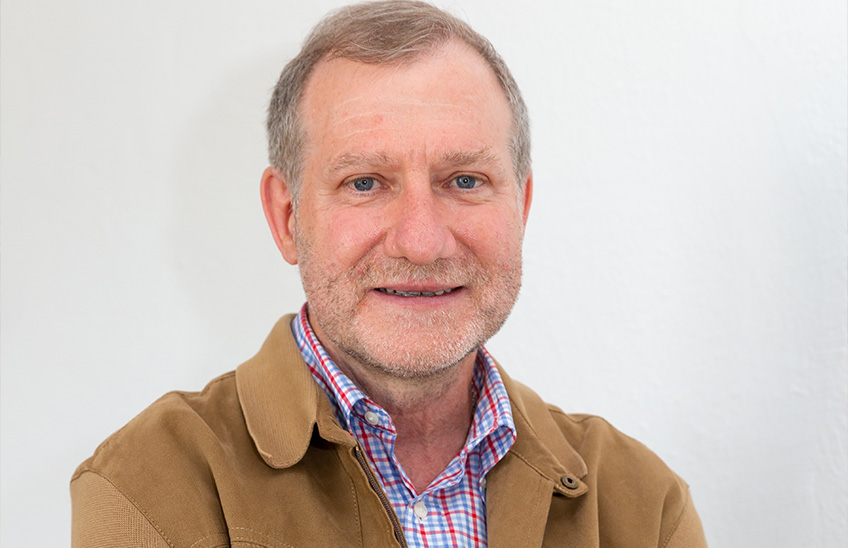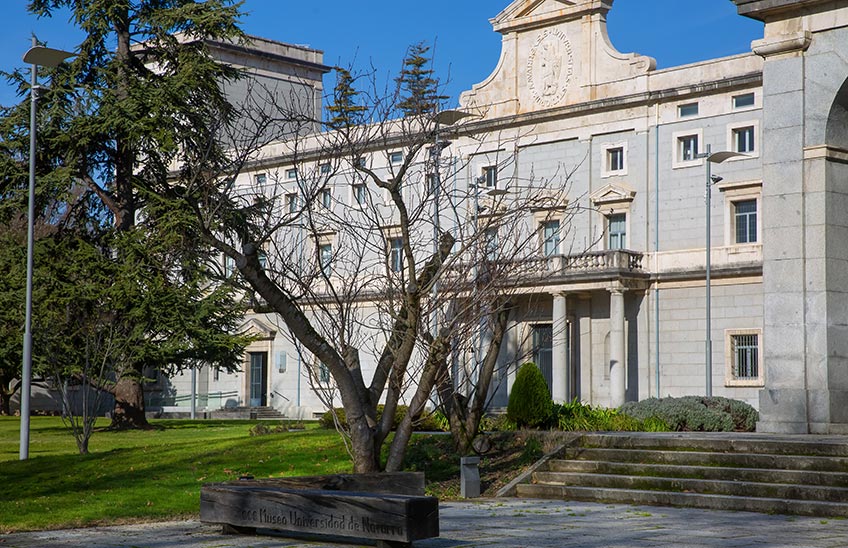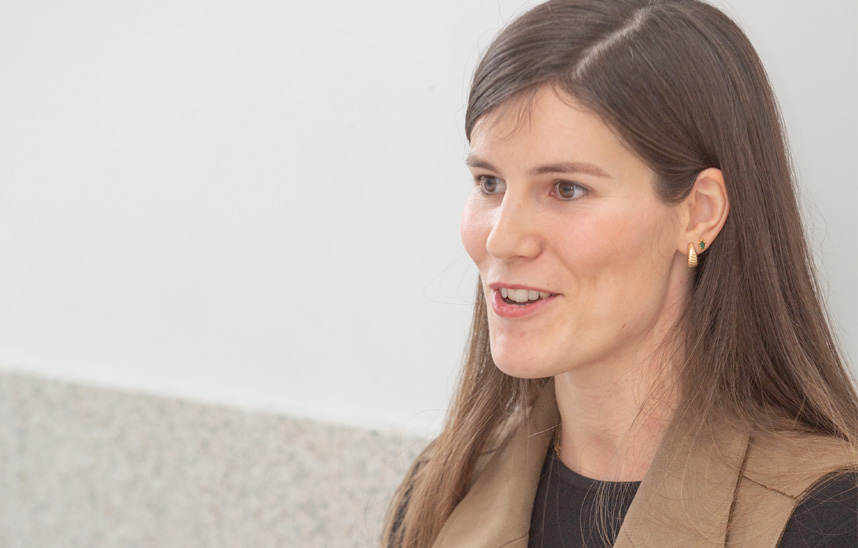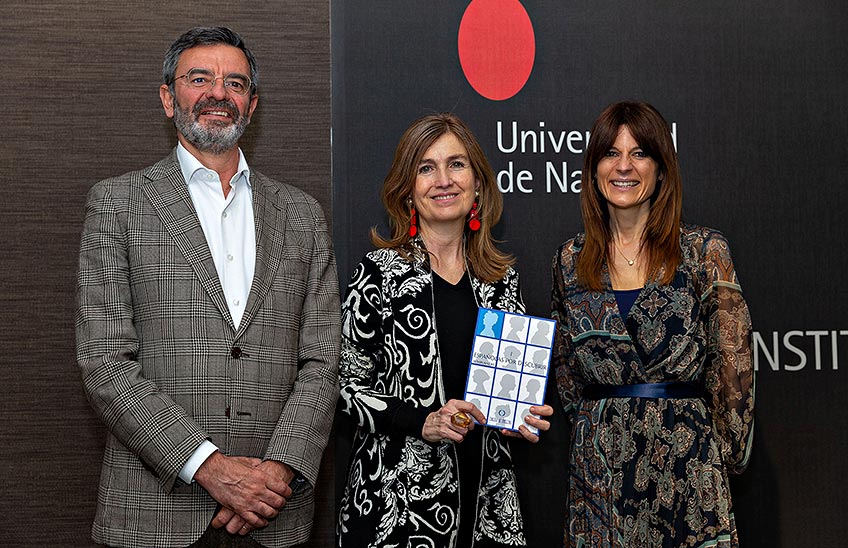Mercedes Sanz-high school program, Falangist politician and founder of the Auxilio Social, protagonist of the first seminar of the GIHRE in the 2021-2022 course.
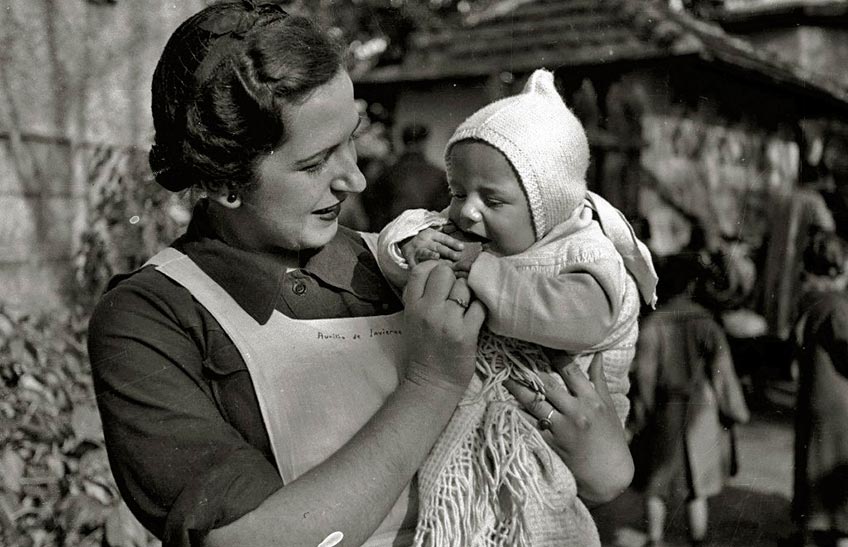
FotoFondoMarín-Kutxa Fototeka/Food distribution by women of the Women's Section
15 | 10 | 2021
The trajectory of the Falangist politician Mercedes Sanz-high school program, founder of Auxilio Social, has been the protagonist of the first seminar of the group of research in Recent History (GIHRE) of the University of Navarra. The seminar has run to position by Professor María Jesús Pérez Espí, who, with the publication of her political biography (2021), has made it easier to get to know one of the few women who reached government positions in the Franco regime.
Among the 6754 procurators in the Cortes under Franco's regime, there were only thirteen women. One of the most renowned was Mercedes Sanz-high school program, who argued in a article graduate La mujer y la política ( 1937) that women's intervention could have "a purely feminine expression" necessary in public life. In 1936 she had founded in Valladolid the Auxilio de Invierno, called Auxilio Social a year later, to assist those suffering from the hardship of the Spanish Civil War. The organisation was to reach a national dimension. However, he also held positions in the high school Nacional de Previsión (1941-1979) and in the Obra Sindical de Previsión Social (1941-1974), from where he continued to help those in need whom he had wanted to help in the streets of Valladolid.
Sanz-high school program was married in 1931 to Onésimo Redondo, founder of the Juntas Castellanas de Actuación Hispánica, which would converge with the political projects of Ramiro Ledesma Ramos and José Antonio Primo de Rivera in Falange Española y de las JONS. When Redondo died in the first battles of the war, Sanz-high school program, who had been appointed Head of the Provincial Delegation of the Women's Section of the Falange in Puebla, left her position to start a collection of clothes and provide care for women and orphans. The death of her husband would also cause her the loss of the third of her children, not yet born. Throughout the GIHRE's seminar , Professor Pérez Espí emphasized that Sanz-high school program showed during her political career a strong character and a deep vocation for assistance.
The Auxilio de Invierno was an imitation of an institution created in Hitler's Germany, which Sanz-high school program got to know through another Falangist, Javier Martínez de Bedoya, whom he married at the end of the Civil War. The organization would end up as part of a precarious Falange, disbanded by the death of its founders and controlled by the State apparatus. In fact, Sanz-high school program suffered especially in the early post-war years from the turbulent relations between the different factions of Falangism, which disputed the orthodoxy of the movement and government posts. In 1940 he resigned from his position in the Auxilio Social and, although his career was not exempt from new persecutions and misunderstandings, he continued to be an influential figure in politics thanks to the support of General Franco and José Antonio Girón de Velasco, Falangist and Minister of work. The adaptability of Sanz-high school program, as pointed out by Pérez Espí in the GIHRE's seminar , explains why he remained in political office until 1979.
Falangist politics, which had grown up in rural Castile, took a significant interest in the countryside. Through his positions in the high school Nacional de Previsión and in the Obra Sindical de Previsión Social, he endeavoured to bring social insurance and institutions such as mutual insurance companies or montepíos to rural areas. In 1943, she succeeded in improving the special agricultural regime. Always interested in these issues, in 1965 she was speaker in the discussion of the special agrarian regime of the Social Security in the Spanish Parliament. In this respect, she was an effective team manager: she had 10,000 local correspondents who collaborated in her initiatives, which were not exempt from the difficulties caused by post-war hardship and threatened by a great deal of corruption.
María Jesús Pérez Espí holds a PhD in Contemporary History from the Universitat Rovira i Virgili in Tarragona (2017) and teaches History at teaching secondary schools and at the UNED centre in Alzira. Her fields of research are post-war repression during Franco's regime and the political participation of Falangist women. On this occasion, she has used the personal archives of Mercedes Sanz-high school program and Javier Martínez de Bedoya, among others, for her study.
Photo of the Marín-Kutxa Fototeka Fund

